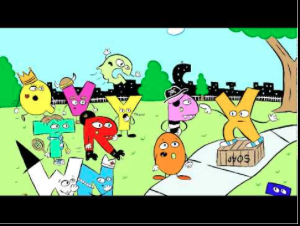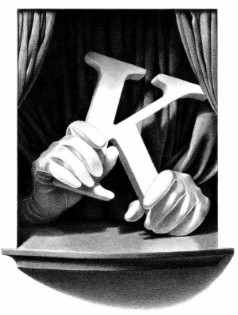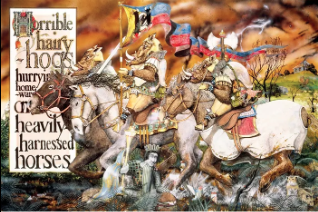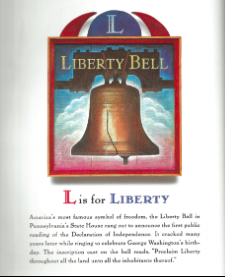
“It was an average day in Alphabet City.
S was soaking up some sun, bearded B
was bouncing a ball, R was roller skating,
and there was P in the pool.”
Even the younger kids get the potty humor but sometimes it takes a nudge from the next kid who whispers, “get it… P in the pool!”
If you are not familiar with the story, it centers around the character X who is excited and exasperated that the alphabet is so unfair. He’s always near the end of the alphabet, needs to come after E in most words, and few words start with him. X soon discovers that the Alphabet Constitution features a clause that if a majority of letters are dissatisfied with the current order, a new alphabet may be created. He makes his case and calls for a vote. On the eve of the vote, X has a dream that he is asked to perform the roles of other letters, and like Ebernezer Scrooge on Christmas Eve, his attitude is altered. He comes to realize that some letters do some very difficult work and follow some very odd rules. In its playfulness with language about language, this short tale examines the difficulties with English spelling and pronunciation. English teachers at most grade levels would find this an excellent introduction to any study of language. In addition to its grammar lesson, this short tale explores themes of empathy and knowing your value as a team member. Most of all, it’s fun.



Allsburg, Chris Van. The Z Was Zapped: a Play in Twenty-Six Acts. Houghton Mifflin, 1987.
Base, Graeme. Animalia. Viking, 2016.
Czekaj, Jef. A Call for a New Alphabet. Charlesbridge, 2011.
Minor, Wendell. Yankee Doodle America: the Spirit of 1776 from A to Z. Puffin Books, 2010.

